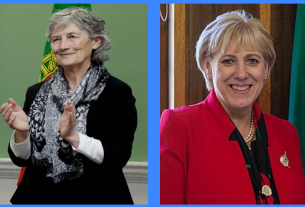By Solomon Alaka.
The relationship between spirituality and science has long been a source of deep reflection and debate. Throughout history, many spiritual leaders, religious communities, and individuals with spiritual or mystical experiences have claimed the ability to influence natural phenomena, such as prayer for rain or sunshine. These claims are widely accepted by many people across different cultures, regardless of their educational background, race, or religion. In contrast, scientific evidence presents an undeniable reality: human activities, particularly the burning of fossil fuels, deforestation, and industrial processes, are driving climate change, causing environmental degradation, and leading to an increase in natural disasters such as hurricanes, droughts, and wildfires.
The intersection of these two belief systems—spiritual faith and scientific fact—can lead to confusion, especially when it comes to climate change. While spiritual practices may be powerful tools for coping with or influencing certain aspects of the natural world, they cannot substitute for scientific knowledge when it comes to understanding the larger, systemic threats posed by climate change. It’s crucial to make a clear distinction between the two in order to avoid sowing confusion and perpetuating climate change denial.
I would implore the readers not to get me wrong at this stage, I am a practising Christian and have deep seated believe borne out of personal and impersonal experiences and first hand occurences and know beyond any doubt that prayer and worship do work in interceeding in this instances, but I also know that looking at things from a wider perspective, it is wise to consider scientific evidence and research in order to considerably lessen and plan against a future where the culminative effects of human induced climate change would be too great for us to handle collectively.
Spiritual Practices and Their Influence on Natural Phenomena
Across various religious traditions, there are numerous accounts of spiritual leaders, communities, or individuals praying for changes in the weather, such as asking for rain during droughts or sunshine after periods of gloomy weather. In many cultures, these practices are considered effective, and there is a general belief that prayer or collective worship can influence natural events. For instance:
- In Christianity, it is not uncommon for churches or communities to hold prayer meetings for rain, as seen in agricultural regions where rain is needed for crop growth.
- In African traditional religions, some practitioners perform rituals and sacrifices to invoke rain or to pacify spirits believed to control the weather.
- In Native American traditions, ceremonies and dances, such as the Rain Dance, are held to ask for rainfall, with many believing that these acts can invoke a spiritual response from nature.
These spiritual practices often provide comfort and a sense of control over the unpredictable forces of nature. For many, they represent a deep-seated cultural belief in the connection between the spiritual and natural worlds. Such practices can be powerful for maintaining community cohesion and personal hope, especially in the face of natural hardships like droughts, floods, or crop failures.
Scientific Understanding of Climate Change and Environmental Degradation
However, while spiritual practices can serve to address immediate personal or community needs, they cannot explain or mitigate the systemic, global phenomenon of climate change as understood by modern science. Climate change is driven by long-term trends in global temperatures, greenhouse gas emissions, and changes in the composition of the atmosphere—factors that cannot be controlled through spiritual or mystical practices.
According to the Intergovernmental Panel on Climate Change (IPCC), climate change is largely the result of human activity, particularly the emission of carbon dioxide and other greenhouse gases through the burning of fossil fuels, deforestation, and industrial activities. The scientific consensus on climate change is clear:
- Global temperatures are rising: Over the past century, the Earth’s surface temperature has increased by approximately 1.2°C, with projections indicating further warming unless significant action is taken to reduce greenhouse gas emissions.
- Increased frequency of extreme weather events: Scientific data show that climate change is linked to an increase in the frequency and severity of extreme weather events, including droughts, wildfires, floods, and hurricanes. According to the National Oceanic and Atmospheric Administration (NOAA), natural disasters have become more destructive and frequent in recent decades due to the changing climate.
- Environmental degradation: Beyond extreme weather, climate change also leads to ocean acidification, habitat loss, melting ice caps, and biodiversity loss—all of which threaten ecosystems and human populations.
For example, droughts—which may be prayed for or hoped for in certain spiritual traditions—are actually a symptom of broader climate trends. Rising temperatures increase the rate of evaporation, disrupt rainfall patterns, and contribute to more severe and prolonged droughts, especially in areas already vulnerable to water scarcity. These scientific facts point to a pressing need for sustainable practices and urgent action to mitigate further environmental degradation.
The Role of Spirituality in Climate Change Denial
In the context of climate change denial, spiritual beliefs can sometimes be weaponized or misinterpreted to justify inaction. There are instances where people may hold the belief that natural disasters, including droughts, floods, and wildfires, are divinely ordained or the result of spiritual causes. Some may argue that climate change is part of a larger, cosmic plan or that prayer can mitigate the need for large-scale policy change or scientific intervention. This line of thinking can lead to a disregard for the scientific evidence and policy measures that are necessary to address the growing crisis.
For example:
- Climate change denial is often amplified by individuals or groups who argue that the world is in the hands of a divine force and that human actions—such as reducing emissions, transitioning to renewable energy, or adopting more sustainable agricultural practices—are unnecessary or even futile. In some cases, climate change may be framed as a punishment or a trial from a higher power rather than as a result of human activity and systemic industrial practices.
- Spiritual claims of control over nature can foster a false sense of security, leading people to believe that prayer or spiritual rituals can reverse environmental destruction. This can delay or prevent people from accepting the need for scientific solutions, such as carbon reduction policies or climate adaptation strategies, that are crucial for addressing the scale of the crisis.
Why Clear Distinctions Are Needed
To prevent confusion, it is essential to recognize the limits of both spiritual practices and scientific facts. While spiritual practices may have profound personal, social, and cultural significance, they should not be used as a substitute for scientific evidence when it comes to addressing global challenges like climate change. Climate change is not a matter of faith or belief; it is a complex, scientific phenomenon that requires global cooperation, policy intervention, and sustainable practices.
Some important distinctions include:
- Spiritual beliefs are often rooted in individual and communal experiences of the divine or the metaphysical, and they can play an important role in providing psychological and emotional resilience during difficult times.
- Scientific facts are grounded in empirical evidence, experimentation, and peer-reviewed research. They provide the data and insights necessary to understand and address large-scale global issues like climate change, which is driven by physical and biological processes that transcend individual spiritual beliefs.
By separating these two domains, individuals and societies can better navigate the climate crisis and work toward solutions that are based on evidence-based policies and collective action, rather than relying solely on prayer or ritualistic practices.
Conclusion
The confusion between spiritual beliefs and scientific facts in the climate change debate can be detrimental to progress. While spirituality offers comfort, community, and a sense of control over natural forces, it is crucial that people understand that addressing the global crisis of climate change requires scientific understanding, technological innovation, and policy intervention. Spiritual practices should not overshadow the urgent need for sustainable practices, nor should they be used to deny the scientific realities of environmental degradation. It is essential for individuals, communities, and governments to embrace both spirituality and science, each within its proper context, to work toward a sustainable and resilient future.
References:
- Intergovernmental Panel on Climate Change (IPCC), 2023: Climate Change: The Physical Science Basis
- National Oceanic and Atmospheric Administration (NOAA), 2023: National Weather Service: Climate Change and Extreme Weather
- World Resources Institute (WRI), 2023: The Truth About Climate Change
- United Nations Framework Convention on Climate Change (UNFCCC), 2023: The Climate Crisis: A Race We Can Win



